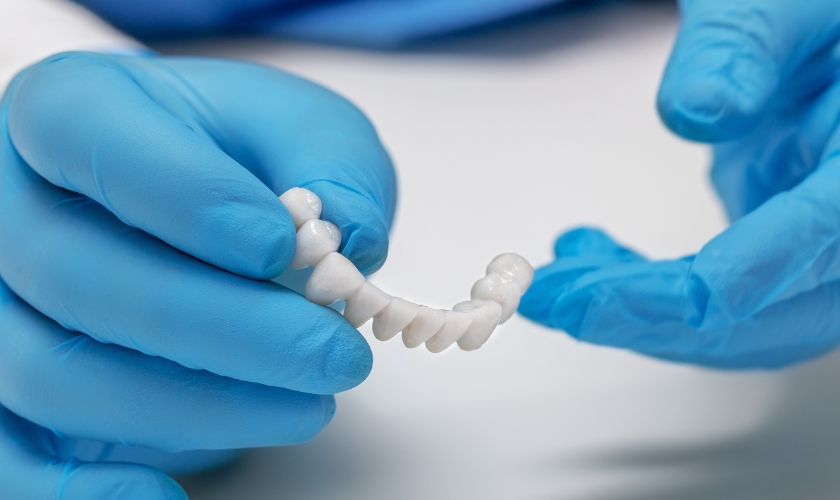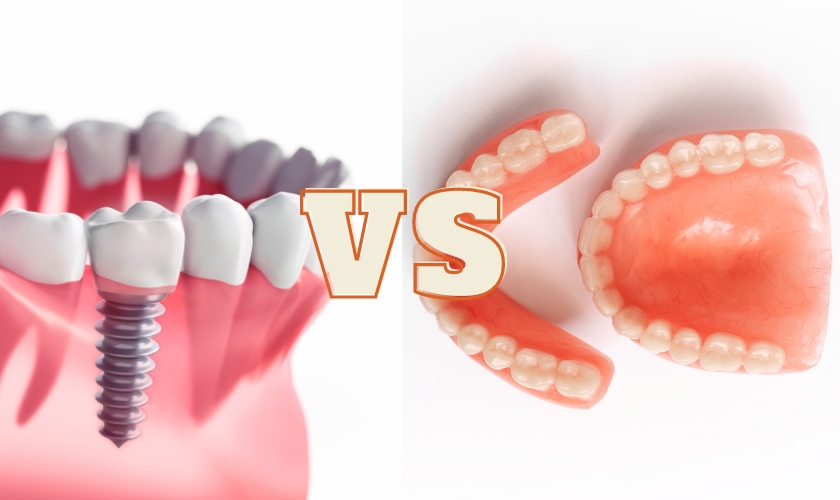
Dental Bridges: A Solution for Missing Teeth in the Aging Population
As we progress through life, our dental requirements undergo a transformation, and the prevalence of missing teeth emerges as a prevalent issue among older adults. Yet, there’s solace in the availability of dental bridges, offering more than just a cosmetic fix. They serve as a practical remedy, reinstating not only the aesthetics of a smile but also the assurance and functionality necessary for daily activities. Let’s explore how bridges adeptly address the distinctive dental needs characteristic of the aging populace.
Understanding Dental Bridges
Dental bridges are prosthetic devices used to bridge the gap created by one or more missing teeth. They consist of artificial teeth, known as pontics, anchored in place by adjacent natural teeth or dental implants. This restoration method effectively fills the space left by missing teeth, preventing shifting of surrounding teeth and maintaining proper alignment.
Benefits for Seniors
- Improved Chewing Ability: Dental bridges restore the ability to chew and eat a variety of foods comfortably, promoting better nutrition and overall health by ensuring seniors can enjoy a balanced diet rich in essential nutrients essential for maintaining vitality and well-being.
- Enhanced Speech: Missing teeth can affect speech clarity by creating gaps that disrupt airflow and tongue movement. Bridges fill these gaps, providing support for proper tongue placement and airflow, resulting in clearer articulation and enhanced communication for seniors.
- Preservation of Facial Structure: By filling in gaps, dental bridges not only restore the structural integrity of the jaw but also contribute to a more balanced distribution of bite forces, which in turn helps prevent the premature aging effects of facial muscle atrophy. This support aids in maintaining facial contours, minimizing the appearance of wrinkles, and promoting a vibrant, youthful look for seniors.
- Boosted Confidence: Regaining a complete smile with bridges can significantly boost self-esteem and confidence in social interactions, empowering individuals to engage more comfortably and authentically in both personal and professional settings.
Types of Dental Bridges
Traditional Bridges:
Traditional Dental Bridges are the most common type, as they provide a reliable solution for single or multiple missing teeth. In this type of bridge, the pontic, or artificial tooth, is anchored in place by dental crowns attached to adjacent natural teeth. These crowns serve as abutments, providing stability and support for the bridge. This time-tested method effectively restores the gap caused by missing teeth, allowing individuals to enjoy improved chewing function and a natural-looking smile. These are the most common type, consisting of pontics held in place by dental crowns on adjacent natural teeth.
Implant-Supported Bridges:
For seniors facing the challenge of multiple missing teeth or compromised adjacent teeth, the stability and durability of implant-supported bridges provide a transformative solution. Unlike traditional bridges, which rely on neighboring teeth for support, implant-supported bridges are anchored directly into the jawbone, offering unparalleled strength and reliability. This advanced approach not only restores functionality but also ensures greater longevity, allowing seniors to enjoy their favorite foods and activities with confidence and ease.
The Bridge Procedure for Seniors
- Initial Consultation: A comprehensive dental examination is conducted to assess oral health and determine the suitability of dental bridges.
- Preparation of Abutment Teeth: If opting for traditional bridges, the adjacent teeth are prepared by removing a small portion of enamel to accommodate the crowns.
- Impressions and Fabrication: Impressions of the teeth are taken to create custom-fit dental bridges that seamlessly blend with the natural teeth.
- Placement and Adjustment: The dental bridges are securely placed and adjusted for proper fit and bite alignment.
Caring for Bridges
- Maintain Good Oral Hygiene: Regular brushing, flossing, and rinsing with antiseptic mouthwash help prevent plaque buildup and maintain gum health, crucial steps in preserving the integrity of dental bridges and ensuring their longevity. Consistent oral hygiene practices also contribute to overall oral health, reducing the risk of gum disease and other dental issues.
- Attend Regular Dental Checkups: Seniors should prioritize scheduling routine dental visits for professional cleanings and examinations to ensure the longevity of their bridges, as regular check-ups enable dentists to detect any potential issues early on and provide timely interventions, ultimately safeguarding the integrity and functionality of the bridges for years to come.
- Avoid Hard Foods and Habits: Chewing on hard objects or foods can damage dental bridges, potentially leading to fractures or dislodgement. Additionally, seniors should avoid smoking as it not only stains the prosthetic teeth but also compromises the overall health of gums and surrounding tissues, potentially affecting the longevity of the dental restoration.
Dental bridges in Miami, FL offer seniors a reliable solution for missing teeth, addressing not only functional concerns but also aesthetic and psychological factors. With proper care and maintenance, bridges can provide a lasting and confident smile, allowing seniors to enjoy their golden years to the fullest. If you’re a senior dealing with missing teeth, consult your Kendall dentist to explore the possibility of bridges and reclaim your smile today.





